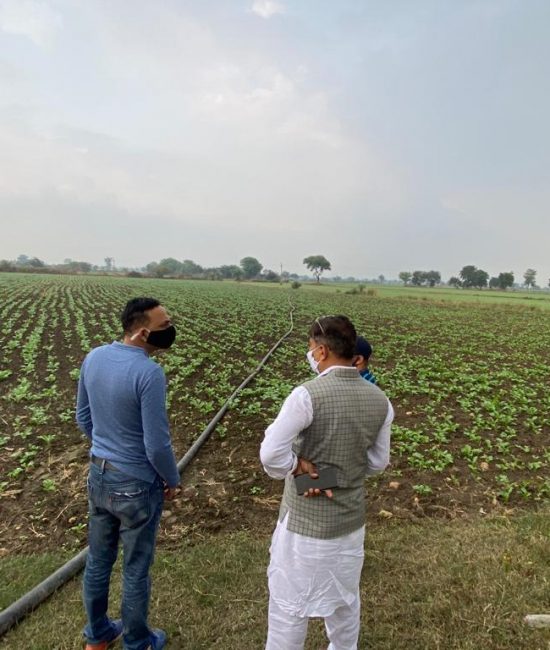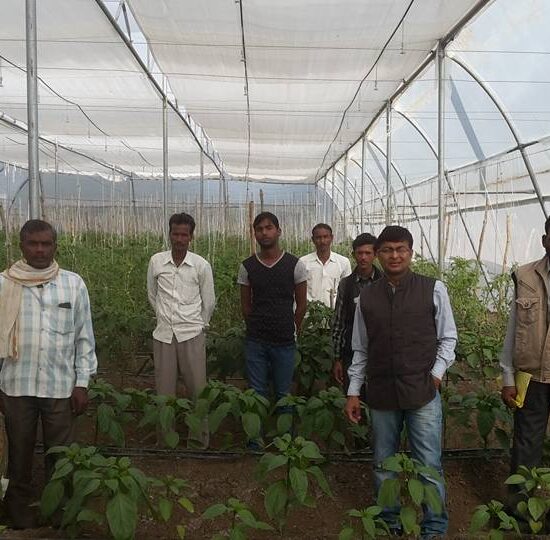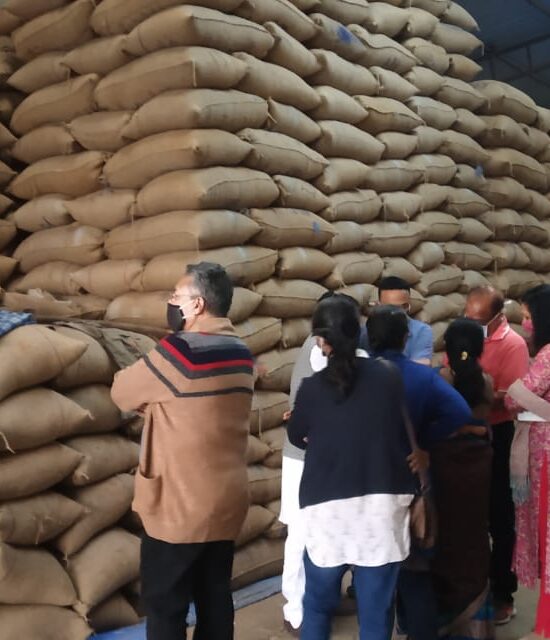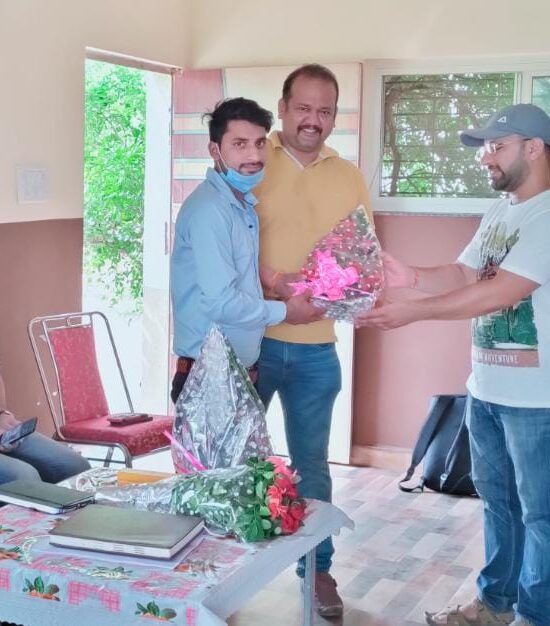A farmer is a person engaged in agriculture, raising living organisms for food or raw materials. The term usually applies to people who do some combination of raising field crops, orchards, vineyards, poultry, or other livestock.
Farming has always been one of the most important economic activities in India. With about two-thirds of the population engaged in agriculture and agriculture-related activities, it is important to understand the plight of farmers in India and why they are struggling to survive. Farmers need to be educated about the schemes and grants provided by the government. They also require training in newer and more effective agricultural practices.
Samanway Mandpam Samiti was established to create a healthy, empowered, and educated community. They have assisted more than 500 families in agriculture and horticulture based livelihood programs
Provides seeds and vermicompost to farmers through FPO and train both male and female farmers in vermicompost preparation and other field related activities. It will help farmers to get proper training and farm equipment required for their livelihood.
The agro-based program of Samanvay Mandapam was mainly aimed at uplifting the people to food and income security, self-reliance and ensuring equal opportunities and environment for the people to live with dignity. The NGO helped establish the Farmer Producer Organization “Ujjwal Bhavishya Farmer Producer Co.Ltd.” without any help
Through this program, they hope to increase employment, reduce transportation costs and eliminate middlemen for farmers trying to sell their produce. The Samanvay Mandapam will help farmers earn their livelihood and lead a happy life.
Since the beginning, agriculture has been a business-based sector and has been the focus area of the Tata Trust. For this purpose, the Farm Manager Program by Tata Research Institute to provide training to young farmers, through Farm to Family to direct the farmers’ produce to the consumer. Accessible work with local agricultural universities and subject matter experts from the Local Krishi Vikas Kendras (KVKs) to develop specific, focused initiatives that enhance agricultural productivity and rural development.
Searching for new young farmers through Tata Research Institute, providing them special technical training and providing employment opportunities has been the main objective of the organization in the field of agriculture so that agriculture can be considered as the best means of livelihood as before.
As a farm manager, you’ll usually work with either animal production, dairy or crop production, although it’s possible that you can work with all three. Livestock on farms tends to be pigs, cows or sheep, while crops can cover cereals, rapeseed oil, vegetables and salad. You’ll implement strategies for maximum yield, organize farm administration, work machinery and manage any associated businesses and staff.
Farms are typically run by management companies or single-owner farmers and must satisfy regulations set by the Department for Environment, Food and Rural Affairs (DEFRA) for safe, high-quality produce farmed in an environmentally sustainable manner.
Responsibilities
FARM MANAGER PROGRAM
As a farm manager, you’ll need to:-
- plan finances and production to maintain farm progress against budget parameters undertake practical activities, such as driving tractors,
- operating machinery, feeding livestock or spraying fields market the farm’s products buy supplies, such as fertilizer and seeds arrange the maintenance and repair of farm buildings,
- machinery and equipment plan activities for trainee staff, mentoring and monitoring them maintain and monitor the quality of yield,
- whether livestock or crops understand the implications of the weather and make contingency plans make sure products are ready for deadlines,
- such as auctions and markets ensure that farm activities comply with government regulations monitor animal health and welfare,
- including liaising with vets maintain knowledge of pests and diseases and an understanding of how they spread and how to treat them.
- We are focused on the areas of greatest need, on the ways in which we can do the most good.
From poverty to health, to education, our areas of focus offer the opportunity to dramatically improve the quality of life for billions of people. So we build partnerships that bring together resources, expertise, and vision—working with the best organizations around the globe to identify issues, find answers, and drive change.




